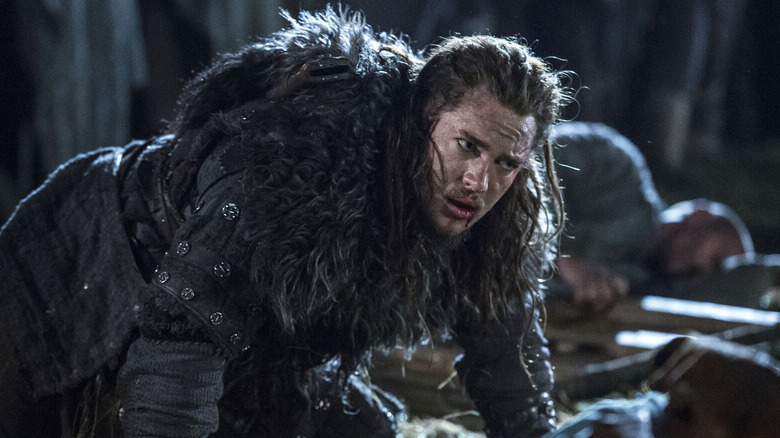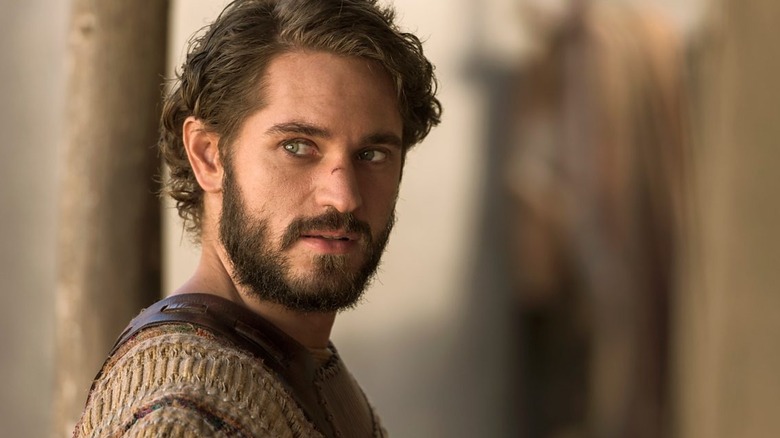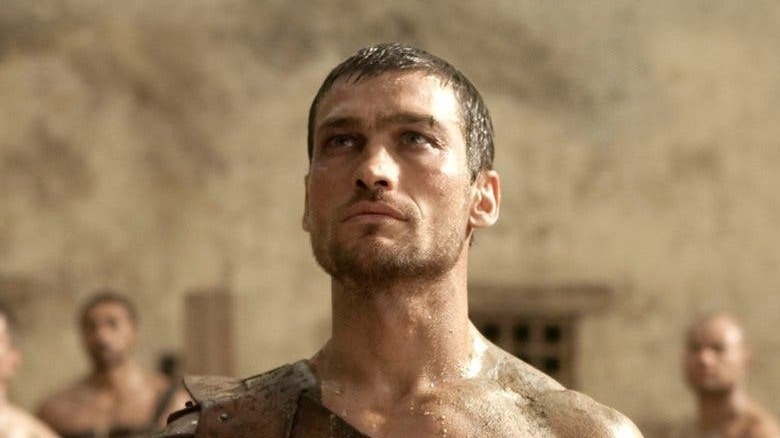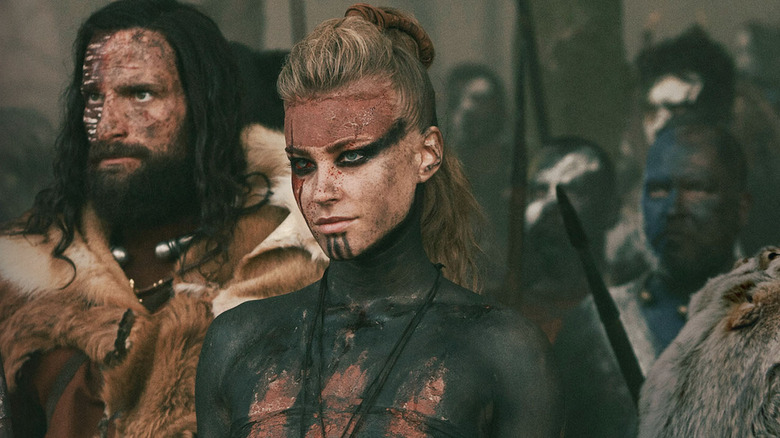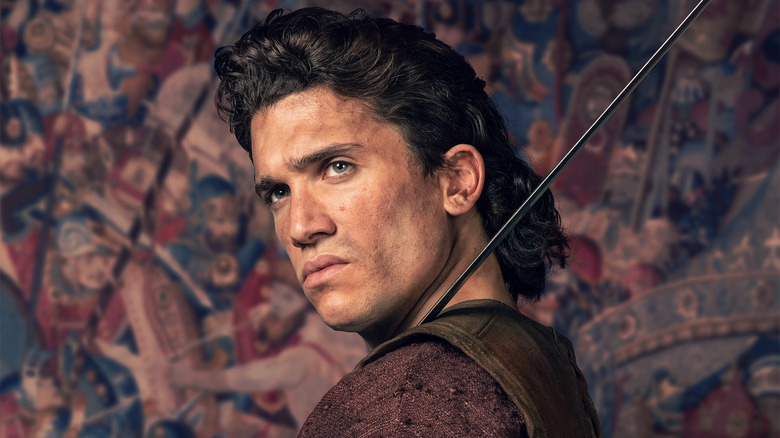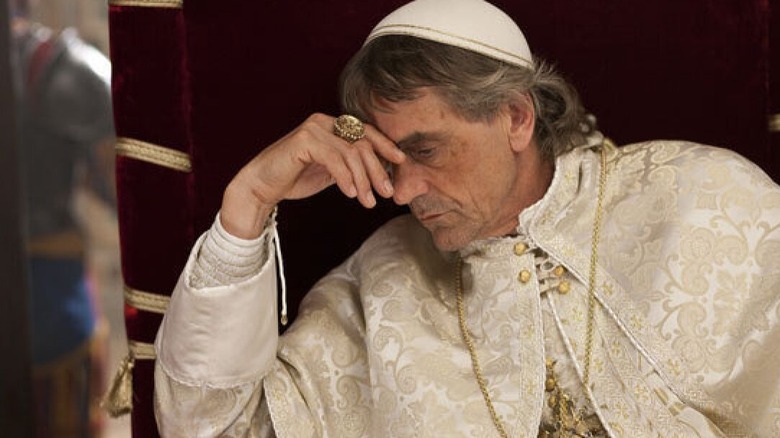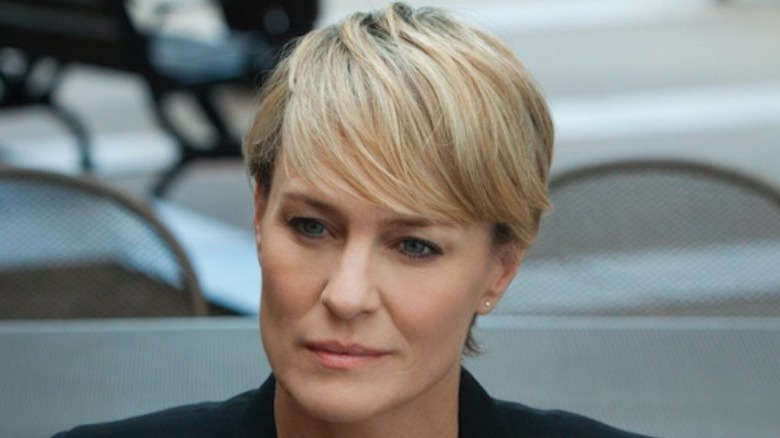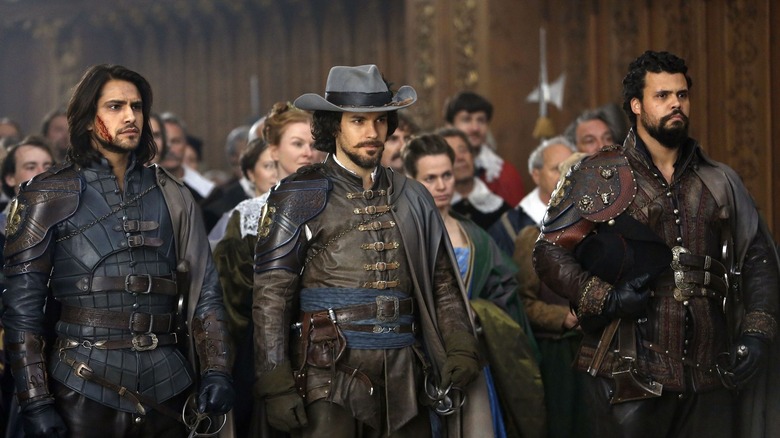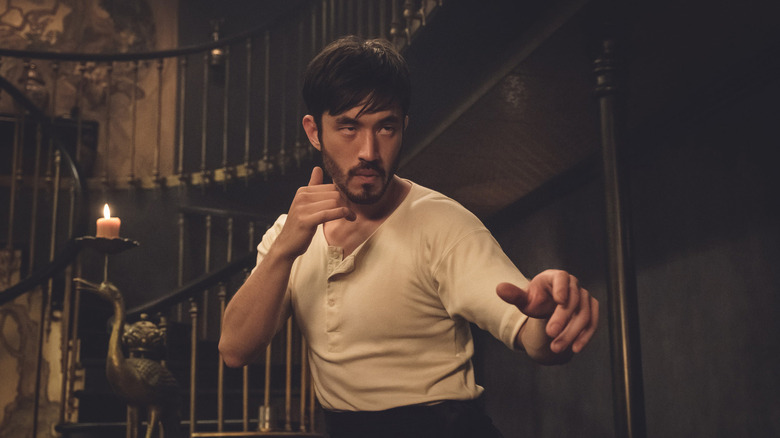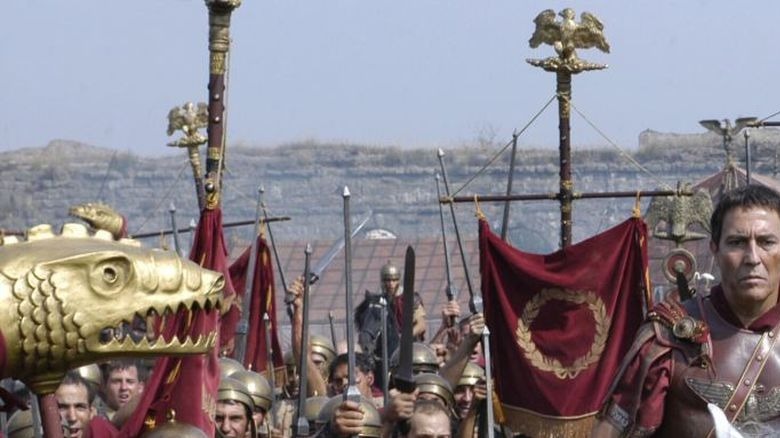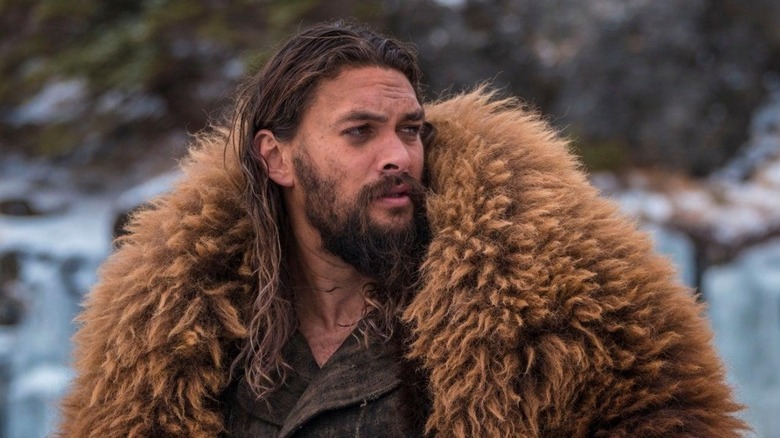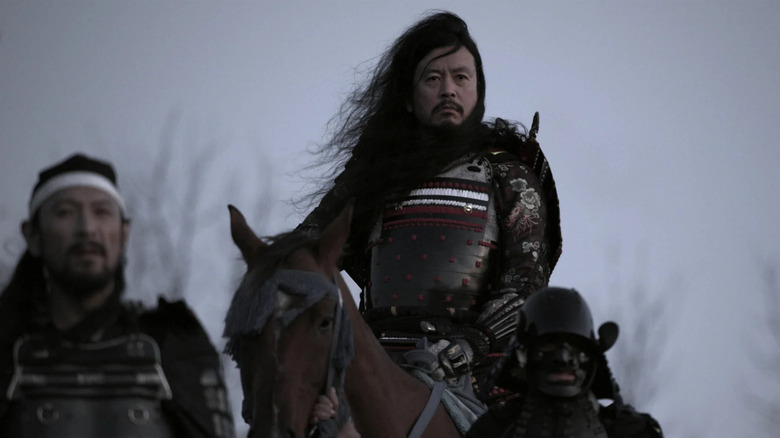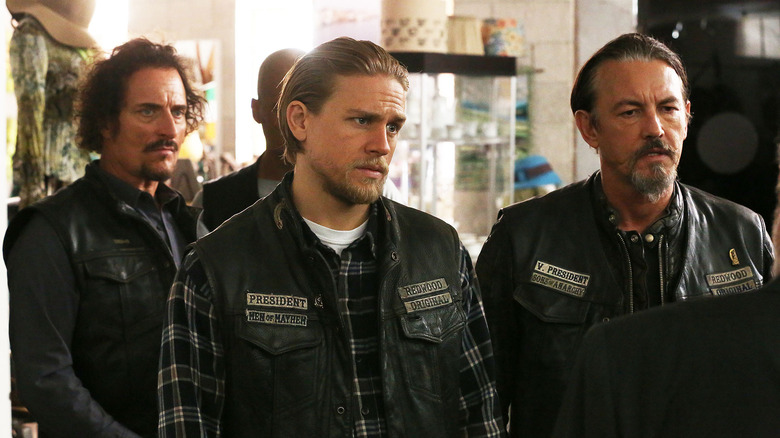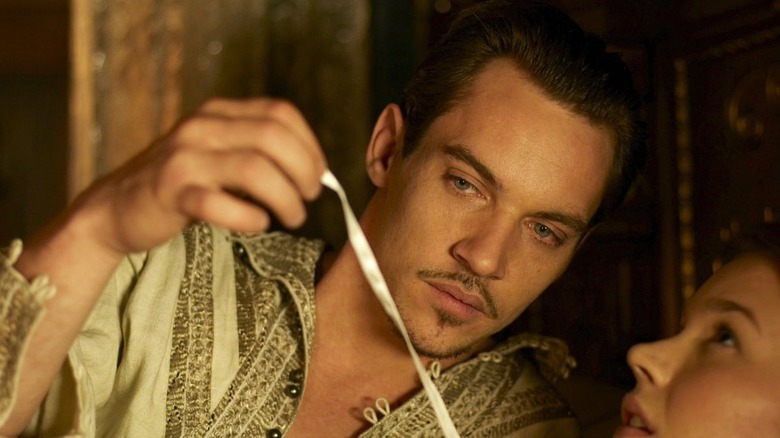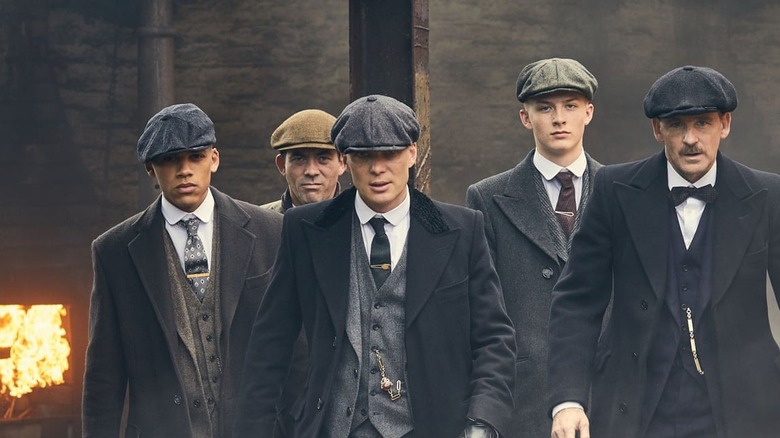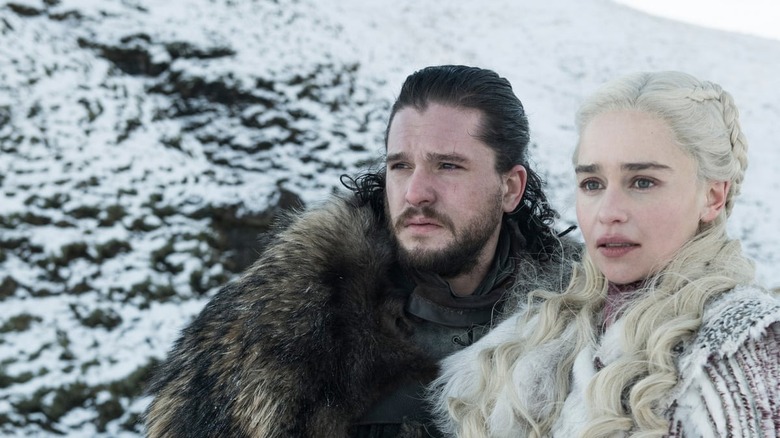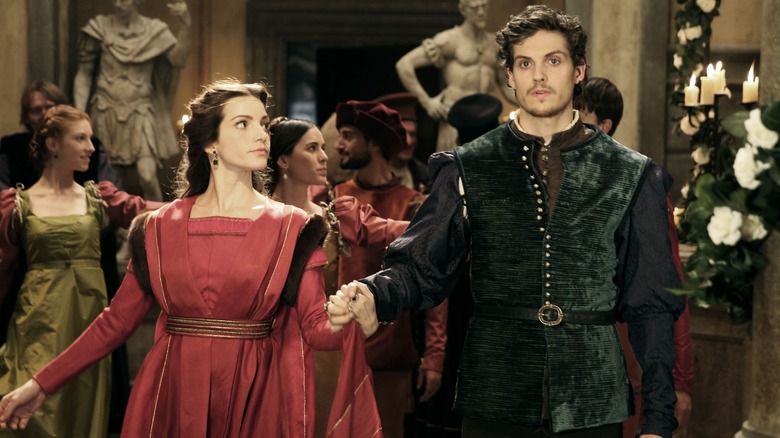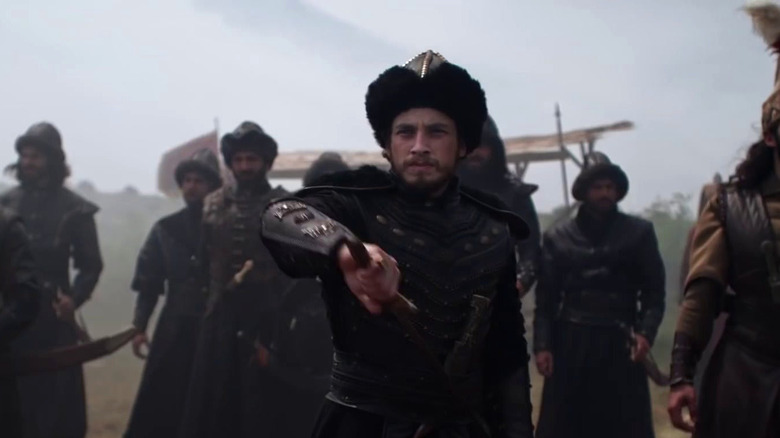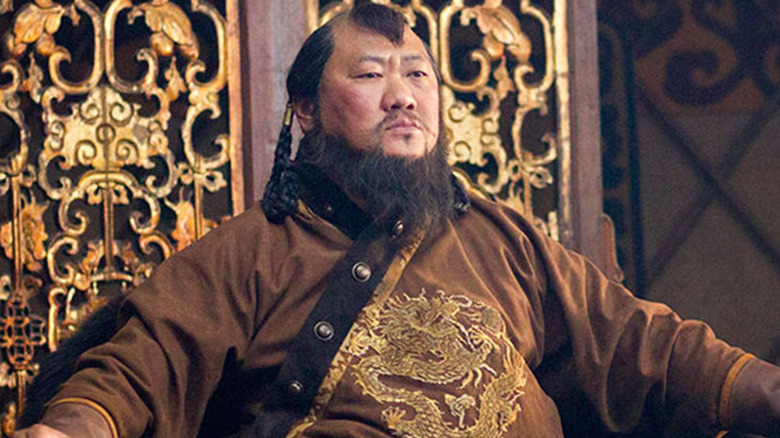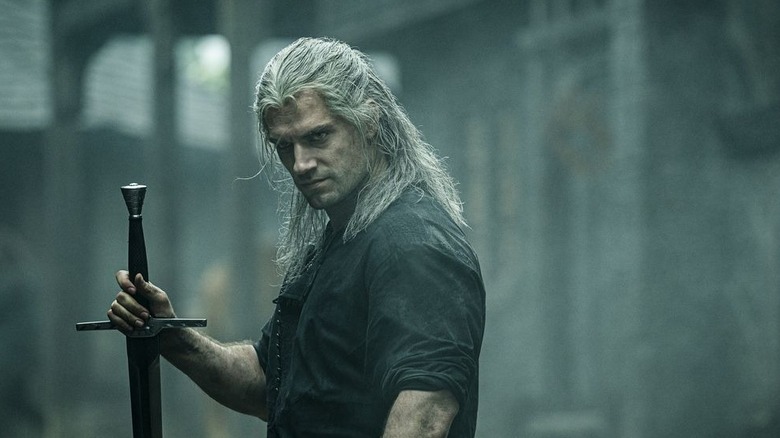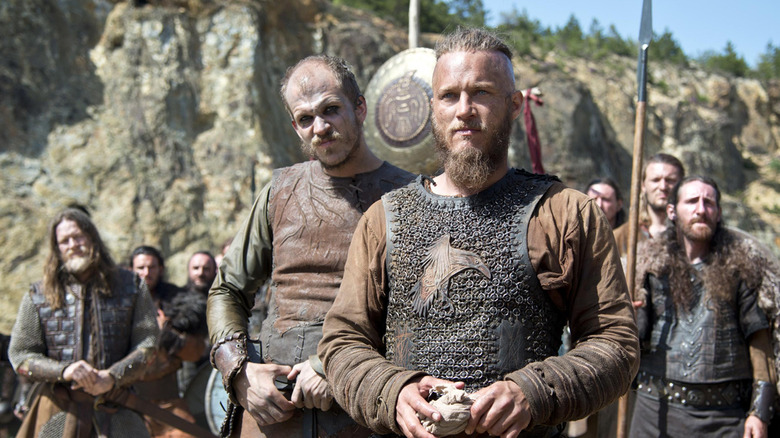20 Great Shows Like The Last Kingdom Ranked
When the carnage begins, not even the strongest shield wall will hold. This is just one of many lessons to be learned from "The Last Kingdom," a BBC and Netflix's series about the last great battles between Brit and Viking in the 9th and 10th centuries England. The eventual peace would lead to the birth of one of the most powerful nations in the western world. The series does a brilliant job of interlacing true history with fantastic drama, centered on a fictional character who at times feels like the most real part of the story: Uhtred of Bebbanburg.
A noble boy gets kidnapped by Vikings, raised as one of their own, and upon adulthood finally returns to his homeland to take back what had been his. Uhtred's journey is equal parts thrilling, violent, disappointing and inspiring. He is a rebel and noble; a heathen and Christian. He does what he wants yet is such a masterful warrior and leader that the king has to swallow his pride and ask for the warrior's help, despite grave insult.
Historical fiction is booming, with more stories about men and women who made their name with the sword than ever before. Of course, part of the draw with shows like this are the epic battle scenes — you can't pull your eyes away when they're well-choreographed. Another intriguing story arc is the game of nation-building, as we see people forging alliances, making complex plans for domination, and engaging in life-or-death "chess" matches. And all this has led to another popular genre — warring factions fighting over territory and power in more modern times. Here's a list of series with similar themes as "The Last Kingdom" that are worth watching.
20. Troy: Fall of a City
The Trojan war is the setting of one of the best-known war stories of all time: "The Iliad." For those who don't know, it is all about a war fought because Helen of Troy was supposedly stolen from the Greeks by Paris of Troy. And when the Greeks came to get her back, it led to epic battle after epic battle as they sieged the city. The Trojan horse is a common term, Greek hero Achilles is well-known by all (as is his only weakness, his heel) and Paris gave his name to one of the great cities of the world.
The series "Troy: Fall of a City," starts with a fiery, tough Paris. Like "The Last Kingdom" it blends legend with brutal, ancient battles. It shows powerful men squaring off, and centers on a man driven toward greatness by destiny and the gods. Like Uhtred, he will become a legend.
19. Spartacus
You might have heard of, or even seen, the classic Tony Curtis movie "Spartacus." The story is simple: A slave from a rebellious tribe fights his way up in the gladiator games and in the process starts a new rebellion that will take on the Roman empire. This version is considerably bloodier than the 1960 movie, and the characters are more ruthless. Just like Uhtred ("The Last Kingdom"), Spartacus is a savage fighter. And also like "The Last Kingdom," the primitive period shown in "Spartacus" is full of manipulations and violence, with passion found both on the battlefield and in the boudoir.
Even more, Spartacus himself is a man in a foreign kingdom, similar to Uhtred. And he is thrust into a responsibility he didn't necessarily want. While Spartacus was a real warrior and Uhtred is fictional, they have a lot in common. They're both men whose cunning and bravery inspires others to join them against the wishes of the king.
18. Barbarians
Uhtred was born to a noble and powerful English family yet raised by the head of a powerful Viking clan. In "Barbarians" Arminius was born to a powerful Germanic tribe yet raised in the halls of Roman power. Both stories are about these men's return to their birthright where their two worlds collide in battle between "savage" and "civilization." The story arcs in these series dwell deeply on their inner conflicts and loyalties. Arminius, however, is sent in immediately to represent the Roman government versus his own people.
There are a lot of similarities. "The Last Kingdom" and "Barbarians" weave together fact and fiction. While "The Last Kingdom" is about English vs. Viking, "Barbarians" is about Romans vs. Germanic tribes whose wiles and strategy defeat the better-armed Romans. Both these series are set in a time before proper documentation. Historians can tell us what they were like but ultimately they are both alien to our modern era that. It matters not whether they're talking about 9 or 900 AD; they both are set centuries ago, with similar power struggles.
17. El Cid
There are a couple legendary generals throughout western history, and the Spanish hero El Cid is near the top of that list. The Amazon Prime series "El Cid" shows his journey from son of a minor nobleman serving a shady king to becoming a prince who defeats all who get in his way. Much of this sounds like Uhtred's journey, even to the point that his rise to power is marked by the undying loyalty he inspires in his soldiers. It even takes place just shortly after the English/Viking struggles that are the center of "The Last Kingdom."
While Uhtred is fictional, El Cid was real. He was especially legendary for serving under both Christian and Muslim leaders. His exploits during the Spanish Reconquista are truly the stuff of legend. Plus, there's an added benefit for fans of "Money Heist": Jaime Lorente, who plays Denver on the international smash hit, is Ruy in "El Cid."
16. The Borgias
While the fighting takes center stage in "The Last Kingdom," there are many times when political maneuvering, shadow games, and marriage alliances are just as fascinating. And "The Borgias" has this in spades. The story of the Borgia pope, played by the inimitable Jeremy Irons, is one of hypocrisy and lust, full of corruption and gamesmanship similar to the jockeying for power in "The Last Kingdom." Pope Alexander VI, the Borgia pope, was known as an extremely power-hungry man, and several of his children would go on to be royalty.
There is also bloodshed and the occasional battle, since during that period the Pope was arguably the most powerful man in the western world. In that period Europe was also known as Christendom and were united by their reverence to the church and its head, the Pope. The king of the most powerful European nation was crowned as the Holy Roman Emperor, and could only be crowned by the pope. Given the importance Catholicism plays in "The Last Kingdom," the story of a powerful and corrupt pope fits perfectly. "The Borgias" is a great way to see the devious and immoral machinations perpetrated by the pontiff and in contrast to Alfred and Aeslwith's dedication to the church's morality.
15. House of Cards
Speaking of political maneuvering, "House of Cards" is a political junkie's dream. While Kevin Spacey has become persona non grata in Hollywood due to allegations of assault and harassment, one can't deny his brilliant performance as the cynical, narcissistic master manipulator Frank Underwood. Plus the rest of the team — including co-star Robin Wright who takes over at the end of the series — are deserved of your attention.
"The Last Kingdom" is a study in the struggle for power. There is some politicking and posturing, but that has to be backed up by the sword. "House of Cards" is a series about where that politicking leads a thousand years later, when wars are fought and won without setting a foot on the battlefield — though it is no less cutthroat, and people still die who get in the way of that quest to rule. In "The Last Kingdom" alliances are made and broken, just as in "House of Cards." The message of the series is that even in the modern era, power doesn't come without getting "one's hands dirty." Just as Alfred single-mindedly pursues his legacy as the ruler of all of England, so does Frank Underwood chase ceaselessly after the presidency. And just as Alfred sees everybody, including Uhtred, as little more than pawns in his quest, Frank Underwood attempts to manipulate anybody who dares come near him.
14. The Musketeers
"The Three Musketeers" is one of the most famous stories about honor, brotherhood at arms, and the defense of king and country. Given how many times "The Last Kingdom's" Uhtred's great armies seem to dwindle to a handful of undyingly-loyal warriors, the parallels here are many. For one, Uhtred, Sihtric, and Finan might even be called the unofficial "Three Musketeers," if only muskets had existed during that period.
Sure, "The Musketeers" isn't based on real history but instead on a novel based on real history. Still, the setting — full of romance and adventure — captures the essence of "The Last Kingdom." The Musketeers act somewhat independently, at times doing what's right for the realm instead of what their rulers ask of them, similar to Uhtred and his army. The series also strays from the strict storyline of the original books. While that might irk some Alexandre Dumas purists, it gives the series creators more freedom. The fictional Uhtred allows "The Last Kingdom" to focus more on telling compelling stories instead of getting bogged down by historical details.
13. Warrior
The kung fu series "Warrior" is about a different type of ongoing feud between warring factions over territory. Just because it's set in turn-of-the-last-century San Francisco, doesn't mean there isn't a lot of bloodshed. If the battle scenes in "The Last Kingdom" are a tribute to a time of sheer strength and power, the battles between rival gangs, or "tongs," are full of the smooth martial arts we've come to love from movies like "John Wick."
"The Last Kingdom" is centered on a single man coming from a foreign land and essentially taking over thanks to his fighting prowess. "Warrior" is centered on recent Chinese emigre Ah Sahm. His martial arts skills combine with his intelligence to help him rise to the position of chief advisor to the head of his gang. Like Uhtred, he isn't afraid to manipulate the situation to his own advantage from time to time. Plus, the issues of race and immigration to America make this an extremely relevant show.
12. Rome
HBO's 2005 series "Rome" existed in a time before streaming, and before there were so many options for violent, compelling historical fiction. Just as "The Last Kingdom" shows the many moving parts that created a unified England, so does "Rome" show how the Roman Empire came to be. While "The Last Kingdom" focuses on Uhtred, it also follows Alfred, whose family line would come to be the first rulers of all England. "Rome," meanwhile, unveils the rise (and eventual fall) of Julius Caesar. Both were brilliant leaders. Both had grand dreams of Empire. Both also had their fair share of betrayals, though Caesar's was obviously more severe.
Also like "The Last Kingdom" we delve into actual history here — the real battles and leaders, betrayals and heartbreak that make both series all the more poignant — with fictional scenarios and characters thrown in to keep it fresh. This combination of fiction and history is the exact formula followed by "The Last Kingdom." It's pretty clear the creators of "The Last Kingdom" were inspired by "Rome," which helped build the genre.
11. Frontier
Savage vs. civilization is a theme central to several series on this list and one of the central themes to Uhtred of Bebbanburg's own journey. In "Frontier" we delve into the back and forth between the government soldiers inhabiting the edges of the North American wilds and the wild trappers and frontier men who did the dirty work to get city people their furs. The eternally-watchable Jason Momoa plays a half-Irish, half-Cree wild man fighting to overturn the Hudson's Bay Company's monopoly over the fur trade. They hide behind their forts with muskets while he fights both the wilderness and his enemies against heavy odds, just like Uhtred.
There are forts, lots of death, heavy battles, and a protagonist who bristles under authority, drawing many parallels to "The Last Kingdom." While it may not sound like much now, the North American fur trade was one of the most powerful kingmakers of the time. John Jacob Astor, of Waldorf Astoria fame, made his fortune off the fur trade. The battle over fur was its own bit of kingdom building, though in a more modern time when kingdoms were determined by commerce instead of all-out war. Although, at times, it feels like war.
10. Age of Samurai: Battle for Japan
"Age of Samurai: Battle for Japan" is a historical war series you must watch if you love the historical elements of "The Last Kingdom." The series centers on the period when a splintered Japan finally gave way to unification under the Tokugawa shogunate. But this series has a documentarian feel, too. The reenactments of battles and political maneuverings are narrated, and intercut with interviews explaining the actual history and relevance of the events. This could be helpful for "The Last Kingdom" fans who haven't read up on their British history. Though this type of drama woven with interviews can be jarring to a viewer if you're not ready for it.
"The Last Kingdom" is about the quest for a unified England, and "Age of Samurai: Battle for Japan" follows the war for a unified Japan. Both meditate on the idea that it took a lot of bloodshed to establish peace. "Age of Samurai: Battle for Japan" also brings to life the birth of the samurai, one of the most iconic warriors of nobility.
9. Sons of Anarchy
From historical reenactments and commentary to fictional biker gangs seems like a pretty big jump. Yet in "Sons of Anarchy" there is plenty of fighting between "tribes," in this case rival gangs, to establish power and solidify legacy. The main character Jax has to balance being a good father with being a top guy in an outlaw biker gang. He bristles under authority, including that of his own mother (played to sinister perfection by Katey Sagal), the de facto leader. In a way, Jax was once royalty but essentially now has to prove himself all over again. Just like Uhtred.
If you like the fighting and the intercrossing alliances of "The Last Kingdom," "Sons of Anarchy" is a superb update. Today, people no longer fight for whole kingdoms — if there are any warriors leading their followers into battles, it's for creating their own little kingdoms in the massive stable states of our world. This is the basis of "Sons of Anarchy," in which rival gangs scrap for control over various illegal enterprises.
8. The Tudors
Henry the VIII is possibly the most famous English king of all time. He threw off the shackles of the Catholic Church and was instrumental not only in giving more power to his councilors but also in the Protestant reformation. He also killed or threw aside his wives at an alarming rate in his quest for a male heir. Jonathan Rhys Meyers plays King Henry as a vibrant, passionate, seductive and mercurial king considerably more dynamic and fit than Henry's portraits would lead one to believe.
It is ironic to see Henry's battles with the church after watching Alfred's ("The Last Kingdom") undying embrace of it. This is especially interesting given that Henry is presiding over Alfred's dream of a unified England. "Tudors" hews history, albeit a history slightly better documented than Alfred's time. That also means the parts where fiction comes into play are easier to discern, though no less fun to watch. For example, Henry's sister Mary wasn't married off to an old Portuguese king, and she likely didn't kill her first husband — but it sure adds some intrigue to the series.
7. Peaky Blinders
Few leaders are as calculated as Tommy Shelby in "Peaky Blinders." Uhtred of Bebbanburg definitely would have respected Shelby — if not allied with him — had they both lived during the same time. Tommy's kingdom-building isn't about unifying the feuding castles of the British Island; it's about rising to the top of the now-unified Great Britain. His quest from lowly commoner to lord and politician is equal parts thoughtful and violent.
Set in post-WWI Birmingham, "Peaky Blinders" is an epic tale that follows a family of gangsters seeking control of the city. The inclusion of people like Winston Churchill and the rise of communism in England tie this fictional story in with authentic history. On an enjoyability level, the cast is amazing. Anything that sees Cillian Murphy and Tom Hardy square off is definitely a worthy series about power struggles and achieving one's own dreams and/or destiny — which harkens back to Uhtred or Alfred in "The Last Kingdom."
6. Game of Thrones
One could argue that all of these series about sword-swinging by medieval conflicted heroes and unification of kingdoms are so popular because of the mega-hit: "Game of Thrones." Here's the first period show that really caught the world's attention with its story of fierce wild men and warring western kingdoms — with magic and mayhem at its core.
No, there is nothing historical about this show. Trying to put it through the rigors of historical analysis would be maddening. But there are unexpected heroes in "Game of Thrones," many of whom are similar to Uhtred. "Game of Thrones" also looks at religious beliefs that may or may not have a real-world impact but sure seem to — and this is not dissimilar to "The Last Kingdom." Plus, there are castles and walled cities and crossing allegiances, with engaging romantic and political arcs. If you didn't watch "Game of Thrones" before, this would be a great time to check it off your list. And did we mentioned there are dragons!
5. Medici
Few families are as historically significant as the Medicis of Florence, at least in the world of art and culture. "Medici" follows the family from patriarch Giovanni (played by Dustin Hoffman) to his son Cosimo (who, among other things, patronized Donatello's David and Brunelleschi's dome in Florence) to great-grandson Lorenzo who was good friends with Botticelli and impacted both the careers of Leonardo da Vinci and Michelangelo. There are three of the greatest artists of the Italian Renaissance with works tied to this family — and this historical fiction series brings that to life. The Medici family are known as Godfathers of the Italian Renaissance which makes Medici a historical name people should know just like Alfred the Great.
The show is also full of love and lust and betrayal. While plenty of it is focused on the boardroom side of building power and influence, similar to Alfred in "The Last Kingdom," there are also some truly great battle scenes, depicting how nobles had to know how to fight as well as any warrior. Again, this is not unlike the noble Uhtred of Bebbanburg. The show also makes several historical references, with locations you can even visit on your next trip to Florence or Rome.
4. Rise of Empires: Ottoman
Most of these historical fiction series are about unifying one's kingdom. "Rise of Empires: Ottoman" is about conquering another and so starting an empire that continues in the same place to this day. The main character is Mehmed the Conqueror, a young man with outsized ambitions. Through a combination of his fighting prowess, his ability to inspire, and his creative mind, he leads the Turks to take over Constantinople from the Christians, establishing the name Istanbul that we know today.
"Rise of Empires: Ottoman" is definitely more on the historical side. The reenactments do drip with atmosphere and the battles are brilliantly choreographed. Yet like "Age of Samurai: Battle for Japan," this series cuts to experts to explain what's happening and give context to an event that rocked the Western world and essentially finished off the Roman Empire.
3. Marco Polo
Around the same time that Alfred's ("The Last Kingdom") direct descendants were starting to realize his dream of a unified England, Marco Polo was connecting the rest of the world. In the series "Marco Polo" we see him as a brilliant young man entering the court of the fierce Kublai Khan after a long trek from Venice to the silk road and eventually Khan's court. Marco Polo is, of course, credited as being the man who first really established trade between China and Italy, and by extension Europe, leading to our own interconnected modern era.
His ability to move comfortably among both highborn and the low is shared with Uhtred ("The Last Kingdom"), as are their constantly-assessing minds. This series shows another trait they both have that is forgotten in stories about Marco Polo: They're both fearless. Benedict Wong also plays a truly frightening Kublai Khan, which is funny when put up against his comedic Wong in the Marvel Cinematic Universe.
2. The Witcher
Okay, so there's nothing historic in this fantasy tale set on the fictional land: "The Continent." And while "The Last Kingdom" is about the stabilization of England after the Viking invasion, "The Witcher" focuses on magic and hunting monsters. But they feel the same. "The Witcher" also shows a trio of powerful people traipsing the countryside very similar to Uhtred and his own merry band.
There is one reason the series has made it up to the beta of this list, though: "The Witcher" is just that good and entertaining (and we don't just mean for people who read the novels on which it's based). The series is a period drama with a medieval bent and lots of love and swords — and, well, horrible people. All of this is similar to "The Last Kingdom." Since it's so entertaining, though, we will give them the leeway to follow one fictional rabbit hole after the next.
1. Vikings
"Vikings" and "The Last Kingdom" could be companion series. The young men portrayed as the sons of Ragnar Lothbrok in "Vikings" appear or are mentioned in "The Last Kingdom." The regions of Wessex and Mercia play huge roles in both, as do the Vikings, settlers and marauders. Even King Alfred appears in "Vikings" which, if it was historically accurate, would mean that it came right before "The Last Kingdom." While "Vikings" is a blend of myth and reality, with timelines skewed and relationships enhanced for commercial value, it does have some grounding in historical tools, habits, and even a few of the characters.
At times "Vikings" feels like a more lurid version of "The Last Kingdom," with arguably more exciting (though less realistic) battle scenes. The show seems to have taken more historical liberties for the sake of plot than "The Last Kingdom." This also means it can take you on a wild ride — unconstrained by accuracy — solely for the purpose of entertainment. If you finished the last season of "The Last Kingdom" and you're looking for similar shows, "Vikings" needs to be your first stop.
